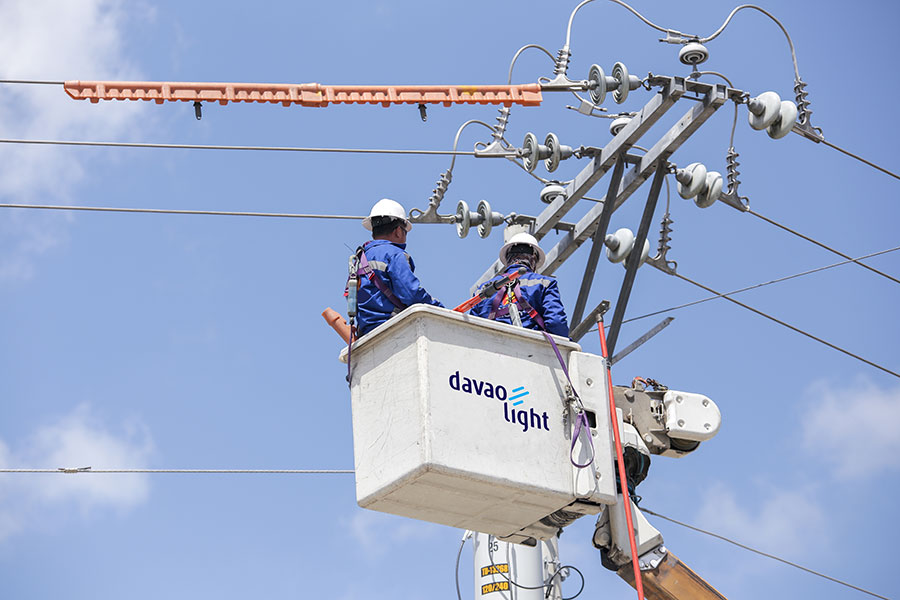Happy new year, dear reader!
Last year, in the last two previous editions of Chords, I touched on two trends: first, the concept of creative destruction — which argues that innovation and technological change can lead to the destruction of outdated industries, firms, jobs, and skills — and, second, the scarcity of skilled power industry workers due to skills mismatches and/or brain drain (at least in the Philippine context).
I again make reference to these two since we are at a point in our country’s history where there is a demographic dividend, or when growth in an economy is supercharged by a young working-age population. Maximizing this bonus by upskilling the young workforce and upgrading technologies and infrastructure is all the more important for this year and the years to come as the Philippines tries to sustain its growth momentum.
S&P Global forecasts that the country will become a trillion-dollar economy by 2033, joining the likes of large economies in the Asia Pacific region like mainland China, Japan, India, South Korea, Australia, Taiwan, and Indonesia. A report from Goldman Sachs also projected that the Philippines will be the world’s 14th largest economy by 2075.
On our end in the Philippine power industry, to harness the economic potential of this demographic dividend and push for these forecasts to become reality, we need to attract and retain the talent who will continue to build, operate, manage, and develop the power plants, transmission lines, and other energy structures that electrify the economy. We need to find remedies to the issues of skills mismatches and brain drain (via a holistic human development approach; see “On a higher purpose and the Great Transformation”) and further increase productivity through capital investments in better technologies, data science, and innovations.
On AboitizPower’s part, our contribution is our Great Transformation journey with the rest of the Aboitiz Group towards becoming the country’s first Techglomerate, a conglomerate that thinks and acts like a life-changing startup while still using the benefits of a legacy company. To that end, in 2023, we launched our Data Innovation Program in collaboration with Aboitiz Data Innovation — the data science and artificial intelligence arm of the Aboitiz Group — to make the practice of data-driven ingenuity a driving force in all fronts of our business, including generation, distribution, and commercial operations.
An example: we have commenced our use of “digital twin” technologies — or a virtual representation of a facility — in our Therma South Inc. coal-fired plant in Davao. With data gathered from advanced pattern recognition analytics, simulations, and analysis, this can help predict potential plant anomalies, determine an optimal schedule for maintenance, and, hence, discern proactive troubleshooting and preventive measures within a safe, virtual environment to ensure more consistent plant availability and efficiency in the real world.
Another example: in our National Operations Control Center or NOCC, the talented and youthful engineers of our subsidiary, Hedcor, are able to operate, monitor, and control over 20 renewable energy facilities spread across the country remotely and from one central location. Imagine: the farthest power plant from the NOCC is 1,181 kilometers away and yet observing and overseeing it is now possible courtesy of a computer, some software, and an internet connection.
Notice how in both examples there is room for more productivity for the workforce. Their jobs are made smarter, simpler, and faster, hence giving more time for them to partake in more value-adding activities. There is also productivity for the end-users of the electricity since they are assured that the supply is more stable and reliable.
We recognize that harnessing and integrating better technologies, data science, and innovations can help us in delivering future-ready energy solutions and help shape the current industry landscape. But with recent advancements in technologies and new government policy seeing the light of day, I think that there is another way to harness the economic potential of the demographic dividend. Applying AboitizPower’s “growing beyond its core businesses” mindset, I believe that we should focus on guiding our consumers towards more energy independence and empowerment.
A sizable amount of investments in energy efficiency upgrades will eventually be self-financed by prosumers, or commercial/industrial/residential entities who are simultaneously a producer and a consumer of electricity. I’m betting that as more of our young working-age population navigate their way through life — establishing their careers and businesses, as well as building their families — those who can will seize opportunities to dig into their own pockets and invest in long-term solutions that will decrease their electricity costs and their vulnerability to power outages and fluctuations. Of course, I am talking about the huge potential upside of mobile energy storage in electric vehicles or EVs (see “On mobile energy storage and the idea of creative destruction”) and net metering.
Whereas mobile energy storage (still conceptual at this point) involves storing electricity in your EV’s battery then using it to either power one’s home or sell it back to the grid at opportune instances, net metering (which is already happening) involves generating the electricity itself via solar panels to directly supplement one’s personal electricity supply; thus offsetting consumption from one’s distribution utility and, once possible, further decrease the cost using earned credits. Collectively, these energy prosumers and storers can produce and store significant amounts of electricity, as well as help balance its supply and demand in the grid, enough for them to be referred to as “virtual power plants”.
There will also be a point in time wherein households and establishments will have more say on who supplies their electricity and what type of energy source they would want to consume. With government policies like Retail Competition and Open Access and the Green Energy Option Program already enabling the possibility of a democratized power ecosystem — and assuming that existing thresholds are eventually relaxed — consumers of the future will certainly have more power of choice. Consequently, consumers will also take on more responsibility as stewards of the energy transition via the choices they make on their electricity consumption. But of course, this goes without saying that the grid will also have to become smarter and flexible to account for this greater dynamism in electricity supply and demand flows.
Overall, having enough reason to believe that mobile energy storage, net metering, and virtual power plants will significantly rewire the future of the power industry value chain, the long-term strategy of any good business is not to stunt demand for more energy independence, but to cater to it. If we are to learn anything from the history of creative destruction, it is that businesses who refuse to innovate and embrace technological change at the window of opportunity and are in favor of a steadily declining status quo will stagnate and eventually be shown out the door. Remember that something better is always on the horizon. The challenge is knowing whether you’re looking at the right thing at the right time. Let’s hope that this is the case for the energy sector’s endeavors in 2024 and for the rest of the decade.
Chords is the monthly column of Emmanuel V. Rubio — biker, music lover, and President and CEO of AboitizPower. Under his leadership, the company pursues significant growth in its generation portfolio, aiming for a 50:50 balance between its renewable and thermal capacities. Chords references Manny’s passion for playing the guitar and how the combination of notes & the subtleties of strumming produce unique melodies when the sounds of individual strings are blended together, much like the elements of industry, corporations, and life.



